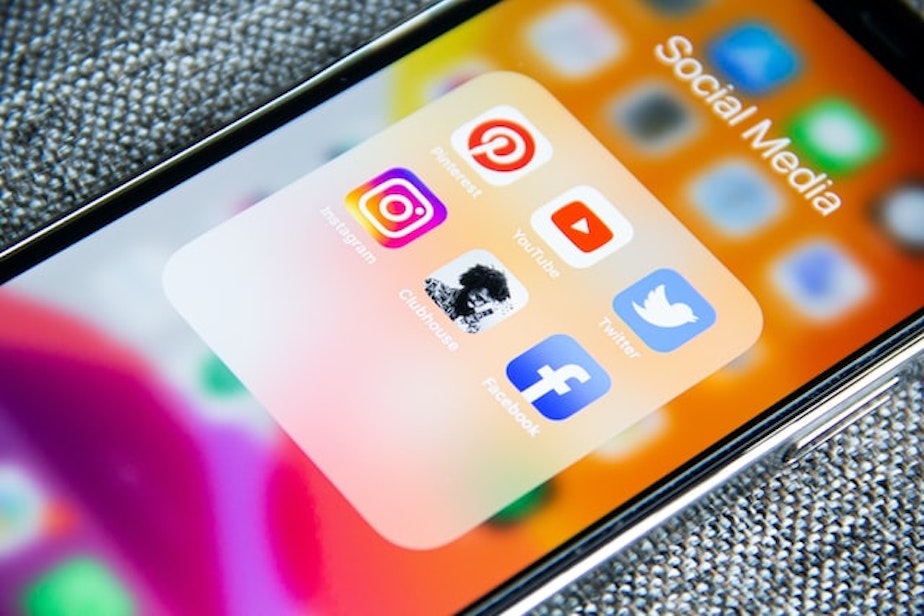How do you protect kids online... from their own parents?

TikTok, YouTube, Twitter, Instagram — there are lots of platforms where posting your kids can be a full-time job. And with pays for views and brand deals, a pretty lucrative one.
Last year, former Washington state Rep. Emily Wicks proposed a bill looking out for “the interests of minor children featured on for-profit family vlogs.”
"People are posting their photos of their kids online, which is great," Wicks said. "But when you start to collect revenue from doing that, it does become an issue with how often you're using your children, and what you're kind of forcing them to do."
The idea for the bill was brought to Wicks by a high school student named Chris McCarty, who took on the issue as a Girl Scout project.
Wicks says a lot of her fellow lawmakers were excited about the prospect of protecting kids’ interests online.
But the bill fizzled. The committee it went to didn’t have time to consider it thoroughly.
Sponsored
Wicks is no longer a representative — she decided against running for reelection — but the idea for her bill lives on. The high school student who first brought the idea to her attention is now working with Democratic Rep. Kristine Reeves of Federal Way to bring the bill back before the Legislature.
Wicks said this is not something social media companies would be happy to endorse.
"I think it's something that they would actively champion against, and work against," she said. "They don't want to do anything that would cause them to make a lot of changes."
Those changes may be tough to figure out — like how to remove content if the young person asks for privacy after they turn 18, or how to pay them properly in the future. Still, Wicks said the changes are necessary.
"Because they've kind of created this, and it's great, and there's a lot of great opportunities with it," she said. "But there is also a lot of risks and a lot of things that create more challenges that we need to address."
Sponsored
Some laws already exist to protect kids online, like the Children’s Online Privacy Protection Act, which requires parental consent to gather data from kids under the age of 13. Meanwhile, the Children's Internet Protection Act is meant to limit kids' access to obscene or harmful content online.
But those laws don’t address how parents or social media companies can profit off of child influencers.
Professor Jessica Maddox said that needs to change.
"When we see children of these famous bloggers and influencers, the concern is that children don't understand the long-term ramifications of their whole lives being content on the internet," Maddox said.
Maddox is an assistant professor in the Department of Journalism and Creative Media at the University of Alabama who researches social media platforms, internet popular culture, and feminist media studies.
Sponsored
Maddox said there are also financial and ethical questions about this content. In California, child actors are protected by the Coogan Act, which requires their guardians to place a portion of their child's earnings in a trust. But it's not a federal law. And child influencers, or the children of family influencers, don't fall under the Coogan Act.
Maddox said the Coogan Act should be updated to include child influencers.
"If family influencers, family vloggers, are getting any type of brand deals or sponsored content off of their children, it is worth considering," she said. "Should that money be put away, or percentage of that money be put away for their children as they grow up?"
Nationally, there's a patchwork of protections for child performers, from state to state. Seventeen states have no protections. In Washington state, children have to obtain work permits from the Department of Labor if they’re employed in film, video, audio or theater productions. Employers have to obtain special permission if the work happens during school hours, very early or late, or the hours go long.
But those laws also don't apply to the children of influencers. And Maddox said that's concerning.
Sponsored
"We don't know what goes on behind the scenes of a camera," she said. "We don't know how many takes it took or how long it took to get the content."
Even if the Coogan Act or Washington's child performer laws applied to child influencers, there are still other areas of concern. None of the laws touch on consent, or privacy, or the mental health effects of growing up in front of a camera.
Maddox said she's starting to see grassroots conversations about these concerns happening on TikTok, led by children whose parents put their entire lives online.
Many are now adults and they are unhappy that their parents shared private information, including about their physical and mental health, on the internet.
Maddox noted that it's not just regulation of parents or influencers that needs to occur, social media platforms also need to be regulated.
Sponsored
"It's also important to know that platforms make a lot of money off advertisements that run on videos off of these creators themselves," she said. "And if platforms are making money off the content of minors, I think that is a conversation we need to have as well."
Maddox said this is not about singling out individual creators or their practices. She said the real issue is a system that allows people and companies to profit off of children.





